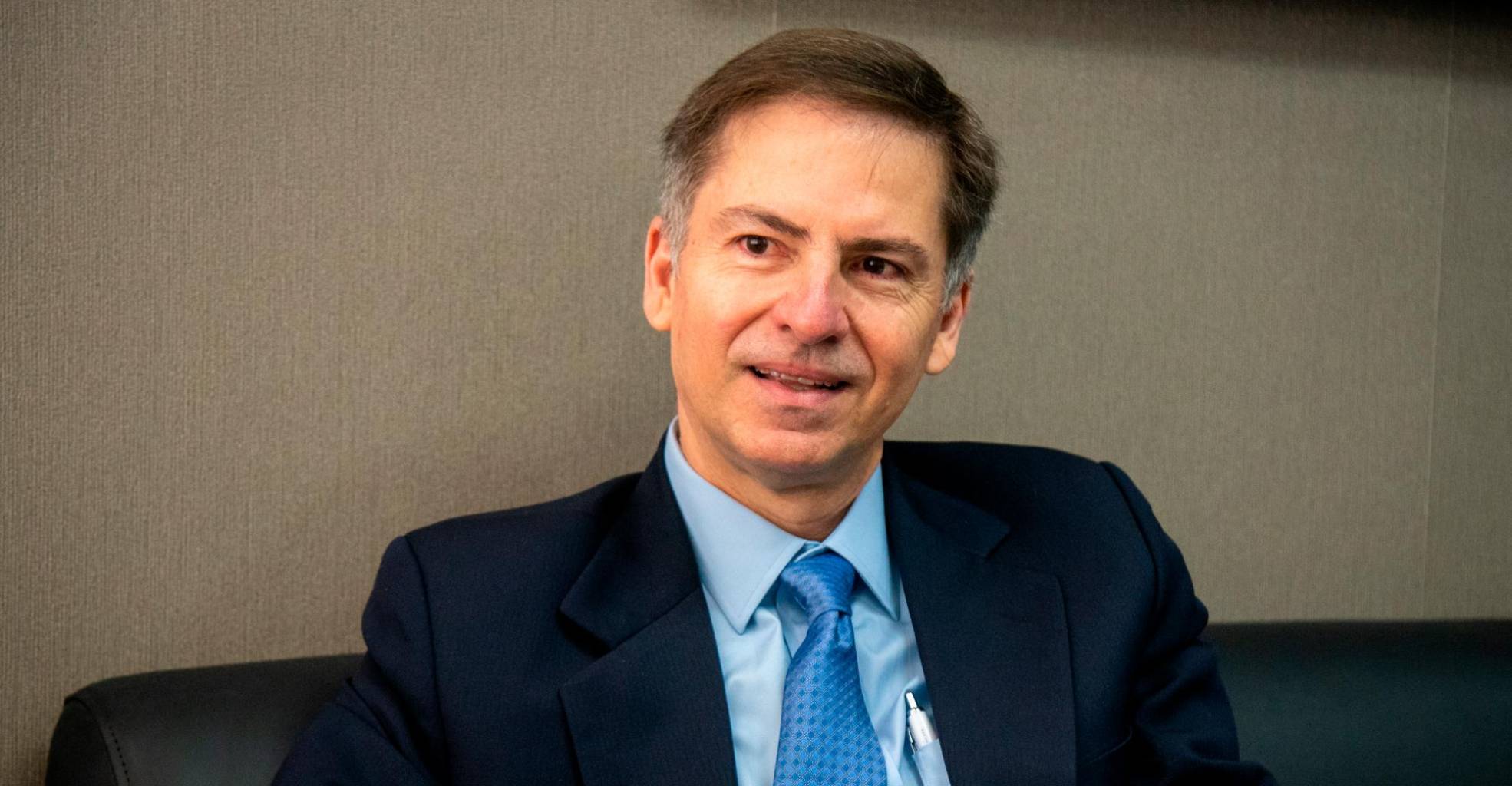“The pandemic has caused a monumental crisis throughout the Latin American and Caribbean region.” That could be the introduction to this interview. And yet the World Bank vice president for Latin America and the Caribbean does not seem pessimistic.
According to our numbers, it is the worst crisis since we had numbers for more than a century and it has had repercussions at all levels, not only in health, but also in the economy, society and politics. We have been very concerned about unemployment, the disproportionate increase in poverty. These crises affect the most marginalized strata, the poorest families, women, ethnic minorities, and it has been a really hard period. Fortunately, one of the virtues of our region is that targeted social transfer programs were developed in the vast majority of countries.
“They may appear to encourage patronage, however.”
Look, they started more than 20 years ago in Mexico and then they went to Brazil. The World Bank has been a great promoter of these programs, and we have supported them in all countries, including the Dominican Republic. These transfers were essential to prevent the crisis from getting worse. Poverty would have increased much more in the Dominican Republic, it would have been six points higher, had it not been for these transfers. Many developing countries, including Asian countries, have contacted us because they want to learn how to do it, since the pandemic is hitting them stronger now in this second phase.
—Once there was talk of “the lost decade” of Latin America. Has the pandemic returned this scenario to us?
I think it is dramatic that this pandemic arrived in 2020, at a time when we had already been growing in the region for at least five or six years at very low rates, most of the countries very close to zero. The Dominican Republic is an exception, it is one of the two or three countries that have managed to maintain a positive and very persistent economic growth of capital for more than two decades. In the Dominican Republic, economic activity and employment will be able to go up this year completely according to our calculations. Several countries, including many Caribbean countries, will not regain their per capita income until 2023 or 2024.
– Invest in infrastructure or in education? What is faster to get out of poverty?
I would say that this is not an adequate way of looking at the problem, because experience shows that all the countries that have succeeded have to invest in education for all, quality education, and invest in infrastructure, you cannot prioritize one over the other. Two are absolutely necessary issues and in our region there are countries that are more advanced than others, but I believe that a balance must always be sought.
I am more structurally concerned for the entire Latin American and Caribbean region with the issue of education. Historically, especially compared to other regions such as Asia, we are always very behind. They have prioritized education for several decades, a universal and high quality education, with great efficiency when managing teacher training; with very good administration, and evaluating teachers. Latin America has not yet been able to make this leap … And I am very concerned because this reproduces inequality.
—The circle of poverty is not broken
The upper strata are educated well, they pay for a higher quality private education and the most vulnerable people receive a poor quality education.
– These months the economic news that is most analyzed is the problem of world logistics. Shipowners do not see a solution until 2023.
Very few people predicted what is happening. There were many wishes for a major recovery to take place after such a crisis last year, but no one expected that the recovery would have certain characteristics that have led to these logistical problems, rising international prices for all fuels, including oil, fuel, etc. gas, coal and raw material prices, including minerals and some foods. We have a problem all over the world and in Latin America. Fuels plus food have a very strong impact on the family basket. We watch with concern, but you have to know how to handle it, we will continue to be very attentive in the coming months to see how that is resolved.
—Many companies think about nearshoring, not depending so much on China.
There is a lot of talk about nearshoring, we see some signs that it is starting to happen but we don’t know how deep it is. We believe that Latin America is very well positioned to receive new investments attracted by the advantages offered by its proximity to the United States market, the free trade agreement, some qualified available labor … but it is difficult to predict. The global economy suffers from the tensions between China and the United States, although the global economy has been doing well in recent months. The global level of trade has recovered practically above pre-pandemic levels. Now we have, with respect to China, the big problem of investments for real estate companies. But both countries, which are the great engines of the global economy, have been doing well. Who is still lagging is Europe …
—Venezuela, Cuba and Nicaragua, the three socialist economies of the region are in serious crisis. How do they affect the region?
All three are different and the impact is different. The one that we follow with the most attention due to its size, due to its importance, is that of Venezuela. Especially because of the enormous impact of the migration of Venezuelans to more than half of the countries in the region, starting with Colombia, Peru, Ecuador, Chile, Argentina, Brazil, the Dominican Republic, the Caribbean islands, Panama … nobody it was prepared to host numbers of that magnitude. I was very pleased to see the generosity of practically all countries in opening the doors.
-Colombia …
… Colombia has opened the doors for them, has given them residency for 10 years, gives them education, gives them health, employment, and also helps them with housing. This has been a wonderful thing.
—You recently said that the continent is no longer a middle-class region.
I said that because about four years ago we had celebrated that in our classification we had found the majority of the population of the region, in what we call the middle class, in the middle strata. A significant percentage had moved above the poverty line and the percentage of those who were just above poverty towards the middle class. With the crisis we lost that value. Many people were displaced from the middle class to the class just above poverty. Another population crossed the poverty line, which is why I am terrified to start thinking about a lost decade, because we will surely have to wait two, three or four years to return to being a middle class region again.
—The external debt of the Dominican Republic is a worrying problem. Some argue that we still have the capacity to borrow and others believe that in two years we will be at the limit.
Speaking with international banks and major investors, the Dominican Republic is highly regarded in the context of the region on the issue of public financial management. It has been a difficult issue for Latin America, aggravated by the pandemic, there were countries that were doing very badly, with very high debt loads before the pandemic and the pandemic has only worsened it.
Only in 2020 we calculate that to supply the region the debt was increased a little more than 10 points, which is a lot, a lot.
“In one year for the entire region?”
In one year for the entire region. I think this situation in the Dominican Republic is one of the best in the region. It did not increase that much, they have good ability to pay. There are no investors concerned about the investments made in the Republic. Obviously they are monitoring and seeing how fiscal issues are handled, but I would tell you that in general terms, the Dominican Republic compared to the average for the region is doing well.
“So we’re going to get into more debt.”
It depends on the will of the country, there are countries that go out of debt and others that do not. We generally try to recommend … because what is a good time to get into debt? When you have an economy that is not at its peak and there are investments in the parts that need to be financed, especially in infrastructure. This is a good time to get into debt. At a time when the economy is giving it to full capacity, it is not a time to go around having a lot of expenses, because inflation is growing.
“Does the tax pressure hold a rise?”
The issue is not just about the Dominican Republic. This issue of the deterioration of the fiscal position causes this type of debate throughout the region. Tax reforms are very specific to each country. Here I have heard that it has been debated in a very vibrant way, and that is very good, because these reforms of this type are very important reforms. I have had the opportunity to speak with the Government, with the president, with the finance minister, also with civil society, with private businessmen, and I see that there are conflicting opinions on this matter. It is vital that there are discussions between the societies and that all the pros and cons are thrown out.
—What do we need to understand to redistribute and not just grow?
The Dominican Republic has had an enviable performance, and at this juncture of this pandemic, a great recovery. First, vaccination rates of the best in Latin America, it is a fantastic position, already above 60% with the two doses. A very dynamic recovery, one of the two or three fastest and most intense in the entire region in both employment and economic activity. That is very positive and it should be highlighted, but the second message is about the concern of how to make this growth that the Dominican Republic has had to reach everyone. It is a valid question and it is a strong statement, the Dominican Republic has very dynamic sectors, the tourism sector, the free zone sector, but how do you make these sectors create more indirect jobs?














